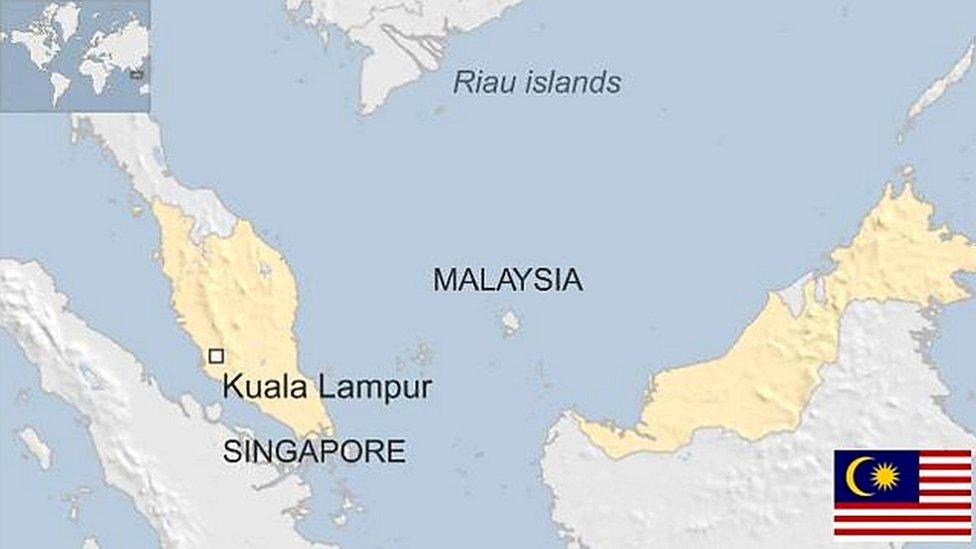Q&A: Malaysia elections
- Published
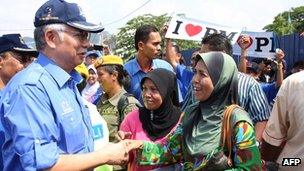
Prime Minister Najib Razak's manifesto pledges affordable living costs
Malaysians are voting on 5 May in a general election expected to be the tightest in the country's history.
The ruling Barisan Nasional (BN, National Front) coalition has held power since independence in 1957.
But it suffered its worst result in decades in the last elections in 2008, ceding five state governments to the opposition Pakatan Rakyat (PR) coalition.
It also lost a two-thirds majority in parliament for the first time.
Who are the main players?
Prime Minister Najib Razak, 59, is the son of Malaysia's second prime minister, Tun Abdul Razak, and leads the United Malays National Organisation (UMNO), the dominant party in BN.
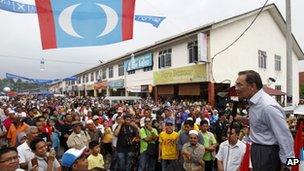
The opposition has been gaining ground on a pledge to end corruption
His main rival is Anwar Ibrahim, 65, who leads the three-party opposition alliance, Pakatan Rakyat (PR). Mr Anwar served as deputy premier under Malaysia's longest-serving leader, Mahathir Mohamad, until he was sacked in 1998.
Mr Anwar has spent much of the last 15 years fighting what he says are politically motivated charges against him and spent six years in jail for misuse of power. He has also been charged with sodomy twice (homosexual acts are illegal in Malaysia) - one charge was overturned on appeal and he was acquitted of the other.
What are the issues at stake?
Mr Najib is highlighting his economic track record. Malaysia is one of South East Asia's most prosperous countries, with GDP growing 5.6% last year. Mr Najib's manifesto pledges to raise living standards, attract investment and fight corruption.
In the run-up to the election date announcement, BN handed out one-off bonuses to thousands of workers at state-linked firms such as the national oil firm, Petronas. It boosted government spending and increased salaries for civil servants, the police and military. BN has also promised to continue a popular scheme of cash handouts to low-income households if returned.
Pakatan Rakyat is trying to tap into a desire for greater political and economic reform by pledging to fight corruption and cronyism, and improve transparency.
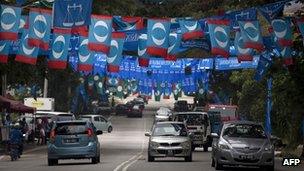
The main parties are contesting a colourful campaign in Kuala Lumpur
It says its experience of government in the state of Penang, where investment flows doubled in the last four years, shows it can manage Malaysia's economy. PR has also pledged to reduce living costs and provide free education up to university level.
Decades-old race-based policies that give preferential treatment in education, employment and business to ethnic Malays are also an election issue. The opposition says these must be reformed to create a more open society and increase Malaysia's economic competitiveness.
The BN, meanwhile, has in recent months emphasised its 1Malaysia campaign for national unity. Mr Najib has also repeatedly said that a vote for him is a vote for stability.
Will the election be fair?
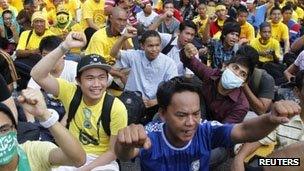
More than 100,000 people took to the streets of Bersih to call for changes to the voting system
In 2012, Bersih - a coalition of NGOs - led Malaysia's largest-ever street rally, urging greater transparency and fairness in the election process.
The Election Commission has now reformed postal voting, introduced the use of indelible ink and made efforts to better manage the electoral roll. Anti-corruption authorities will also monitor polling.
However, the main media outlets are either state-controlled or linked to BN parties.
Mr Najib broadcast his manifesto live on state-run TV over two hours, while opposition parties were offered only 10 minutes each to do so - which the Pakatan Rakyat rejected.
How are candidates elected?
Elections follow the first-past-the-post system. There are 570 candidates for 222 parliamentary seats with some 13.2 million voters.
BBC Monitoring, external reports and analyses news from TV, radio, web and print media around the world. For more reports from BBC Monitoring, click here. You can follow BBC Monitoring on Twitter, external and Facebook, external.
- Published10 April 2013
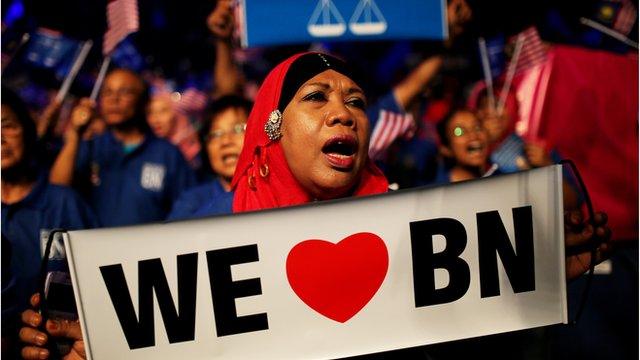
- Published10 April 2013
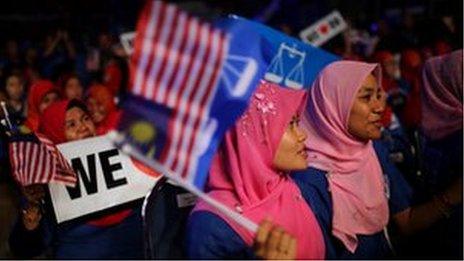
- Published19 May 2023
